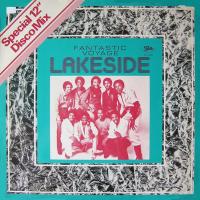
 It is pretty well-established, after two-and-a-half years of writing about the Lost Factor and many more years of writing about how songs endure with time. Every year, no matter how bad you thought it was for music, is somebody’s graduating year and somebody’s musical epicenter. If I am casually dismissive of, say, “Hot Rod Hearts” by Robbie Dupree, Yacht Rock’s most anodyne moment for me, I know I will hear from somebody who loved that song within three comments.
It is pretty well-established, after two-and-a-half years of writing about the Lost Factor and many more years of writing about how songs endure with time. Every year, no matter how bad you thought it was for music, is somebody’s graduating year and somebody’s musical epicenter. If I am casually dismissive of, say, “Hot Rod Hearts” by Robbie Dupree, Yacht Rock’s most anodyne moment for me, I know I will hear from somebody who loved that song within three comments.
But on Saturday morning, SiriusXM was running an American Top 40 countdown from August 1975 on 70s on 7. On 80s on 8, there was a Big 40 Countdown from August 1981. The battle of pop music and Top 40 radio’s bottoming-out summers was on. Often, commenters on the Saturday afternoon AT40 Twitter thread threaten to leave some particularly polarizing ’70s year for the ’80s countdown, especially from the crowd-pleasing 1983-85 years. Last weekend, there was nowhere to run.
The softness of pop music in 1975 and 1981 was driven by a number of the same factors. Both years were flashpoints for Top 40 radio, particularly on AM. In both cases, many of those stations reacted by becoming more adult. By 1981, most AM stations had made the move to AC (if they hadn’t gone Country, AC or something else outright) but some were still reporting to the charts. Both years were also particularly mass-appeal years for Country radio, still feeling the after-effects of Urban Cowboy in 1981.
I experienced current music in 1975 on two great radio stations: Top 40 WRKO Boston and pioneering AOR WBCN (although much of my listening was going to Oldies WROR). In the summer of 1981, there really was no CHR station available. Washington, D.C.’s Top 40 WRQX (Q107) was evolving to Album Rock, while WPGC was softening to AC. That summer, my favorite station became Baltimore’s R&B WXYV (V103).
When I polled readers about their least favorite year recently, there was a lot more derision aimed toward 1981 than 1975. And there was more animosity toward 1990-91, with its mix of soft and rhythmic pop — each provocative in its own way — than to either of the previous years. When we calculated the Lost Factor of 1975’s hits, I had no problem putting together a playlist of favorites from that year.
But with 1975 and 1981 pitted directly against each other, I was intrigued:
- I assigned a 1-10 score to each song in the week’s Top 40. The average for 1975 was a 6.4, the average of 1981 was a 5.7.
- The No. 1 song in 1975 was “Jive Talkin’,” which I can still give a 10 to. The No. 1 song in 1981 was “Jessie’s Girl,” a blessing then, but down to a 7 for me after years of burn.
- Of Billboard’s Top 100 songs of each year, 68 songs from 1975 qualify as “lost” based on my calculations. Recency helps 1981 just a little: 63 of its top hits have a Lost Factor of 1.0 or higher.
- However, the highest Lost Factor song from 1981, “Crying” by Don McLean, has a higher score (61) than its 1975 counterpoint, “Dynomite” by Tony Camillo’s Bazuka (49).
- The Olivia Newton-John song in the 1975 countdown was “Please Mr. Please.” ONJ wasn’t on the 1981 countdown, but “Physical” was on the way. I’d call that one for 1981, but I’ve also heard from readers for whom “Please Mr. Please” is a favorite.
It was Saturday afternoon, and I didn’t stop for a full “punch war” between the two countdowns, but I did encounter the Isley Brothers’ “Fight the Power” on the ’70s countdown, while “The One That You Love” by Air Supply was on the ’80s. And that was the difference between the two years wrapped up into one song apiece. 1975 and 1981 were both great years for R&B. One had the growth of disco, one had disco post-backlash retrenchment to a more R&B feel. 1975 had funk; 1981 had the P-Funk torch being passed to the Gap Band, Zapp, and others.
But R&B was the thing largely missing from Top 40 radio in 1980-82. It’s why the summer sounded a lot better on those airchecks a college friend supplied of WXKS (Kiss 108) Boston, or on V103. A few years ago, I posted a playlist of what 1980 might have sounded like with more R&B and more of the new-wave hits that were on pop radio in England and Canada. Recently reader Kurt Torster suggested I expand that to other years.
I know better than to trash the music now known as Yacht Rock that dominated pop radio in the summer of 1981 — the music that AC, Top 40, and some rock stations could agree on. Yacht Rock has its fans and the SiriusXM channel to prove it. But the key to my 1981 playlist was more R&B, more new wave, more from the UK and Canada, and very little pure AC music. Here’s my attempt to make 1981: Hot, Not Yacht.
This story first appeared on radioinsight.com
